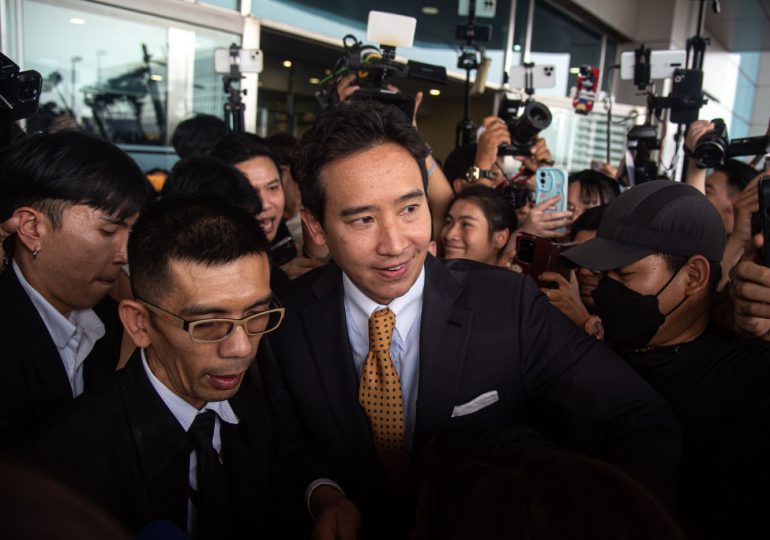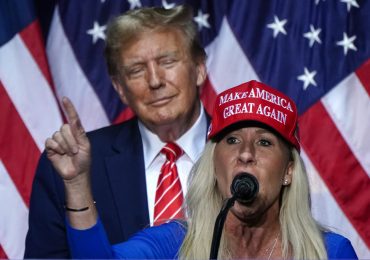Thai opposition lawmaker Pita Limjaroenrat returned to parliament a day after the country’s top court cleared him of allegations he had violated election rules, vowing to scrutinize government policies including a multi-billion-baht cash handout scheme.
Pita resumed his lawmaker duties on Thursday, after the Constitutional Court said his equity stake in a defunct media firm didn’t violate election rules, thus acquitting him of the first of two high-profile legal challenges he had to face this month and ending his six-month suspension.
[time-brightcove not-tgx=”true”]
Read More: The Man Who Upended Thailand’s Politics
The Election Commission brought the case last year against Pita, 43, after his reformist Move Forward Party won the most parliamentary seats in a general election in May. Shortly after the vote, a pro-democracy coalition made him its candidate for prime minister. But the media shareholding allegations were cited to thwart his bid for premiership and threatened to disqualify him as a lawmaker.
A different multi-party coalition that excluded Move Forward was then forged, backed by the military-appointed Senate, resulting in a different businessman-turned-politician, Srettha Thavisin, becoming Thailand’s prime minister and finance minister in August.
Read More: Thailand’s Populist Pheu Thai Party Finally Won the Prime Minister Vote—But at What Cost?
“I see it as a detour. There’s still the destination that I have to get to, even with six months lost,” Pita told reporters at Parliament House. Among his focuses will be a scrutiny into some key government policy proposals, he said, including a 500 billion baht ($14 billion) cash-handout program to most Thai adults that has spurred concerns over long-term fiscal discipline.
Move Forward may also reinstate Pita as its leader in an annual party meeting scheduled in April, after he stepped down last year following his suspension.
The party’s performance in the May election led to an earthquake in Thai politics, given that its progressive platform openly defied the country’s royalist establishment. The Pita-led result challenged wealthy and entrenched conservatives who opposed proposals to break business monopolies, rewrite the constitution and amend the country’s lese majeste law.
Read More: Thai Teen Jailed for Mocking the King as Prospects of Royal Defamation Reform Dim
The court ruling Thursday focused on Pita’s claims that he only managed shares of now-defunct ITV Pcl as part of an estate left after the 2006 death of his father and that ITV was not a media business since its government contract was ended in 2007. Thailand’s constitution bars those seeking public office from owning shares in media firms. After his opponents raised the issue following the election, all 42,000 shares, or 0.003% of ITV’s total, were transferred to his younger brother.
To be sure, Pita’s challenges are far from over. He and Move Forward will return to the Constitutional Court next week to hear another verdict about whether the charter was violated by the party’s campaign pledges to amend the lese majeste law that protects the monarchy from defamation, a much more serious allegation.
Next week’s ruling—if guilty—could prompt the Election Commission to file another petition seeking a dissolution of Move Forward and a ban on its leaders from active politics—similar to a verdict almost four years ago that quashed Move Forward’s predecessor, Future Forward.
“I anticipate some overhanging charges to keep Move Forward off balance and to give the court and the Election Commission a button that they can push later on,” said Thitinan Pongsudhirak, a professor of political science at Chulalongkorn University in Bangkok. “It depends on when they think of you as enough of a threat that something has to be done.”
Leave a comment








